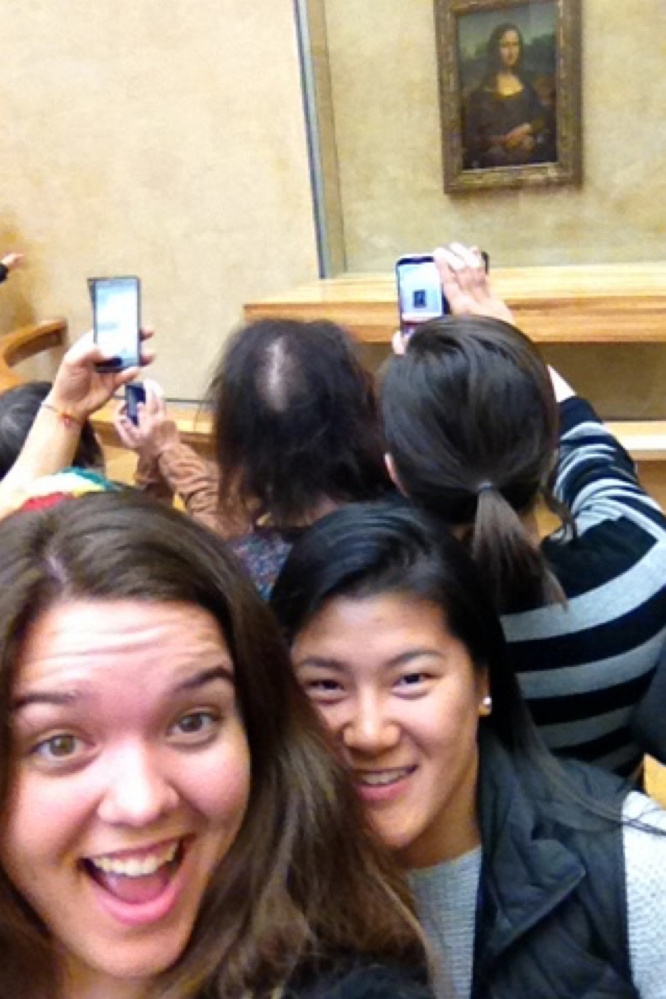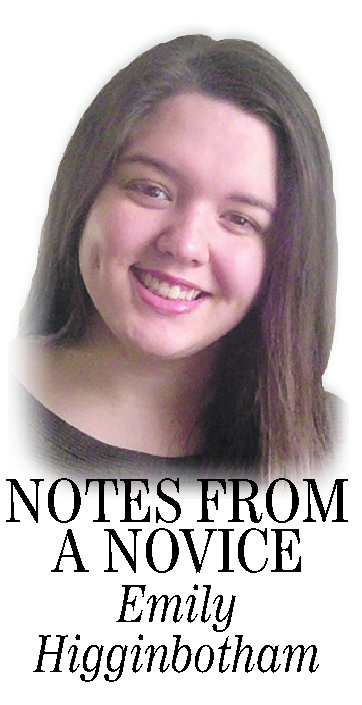Most nights end the same. In bed, curled up, lying on my side, clutching a 6-inch-by-3-inch screen, which emits a muted white light, illuminating just my face, creating a fickle, flickering beacon — an illusory sign that I am not alone — in the darkness. My tired eyes strain, but it’s my thumbs doing the heavy lifting. They do a dance across the glass: gliding, scrolling, typing, tapping — it’s the electronic slide.
They hit icons and conjure up information or entertainment; photos I’ve taken or conversations in which I’ve taken part. They swipe faces, left and right. They double tap images, saturated and exaggerated. They like, retweet, snap, share and post. And then they go still and fall away; the light fades, and that beacon is now just over the horizon — undetectable in the distance.
It is in these moments that I think about how I have 700 friends on Facebook, but I haven’t heard my best friend’s voice in over a year. I have 40 new matches on Tinder, but I can’t remember the last time I held someone’s hand. My data storage is full, but my mailbox is empty.
I am plugged in, and yet, disconnected.
To borrow a line from my favorite author, Jonathan Safran Foer, it’s like living a once-removed life, in a world once-removed from the one in which everyone else seems to exist. Behind our phones, tablets and laptops, we are living a life once-removed from the physical, feeling world. It’s a life in which we frame our experience so it might be attractive in this other existence: what we do, at which restaurant we dine, with whom we spend time, which concerts we attend; it must comply with our brand, our aesthetic.
I’ll never forget being at the Louvre, walking into the room in which the Mona Lisa is displayed, and seeing the crowd: every person’s back turned away from the painting. Each had their phone in hand, tilted at their favorite, flattering angle, to snap a selfie of themselves with Mona Lisa in the background. And then I did the same.
It’s evocative of this drive to document our lives in order to accrue reactions — sentiment and value is now quantifiable in likes. So we walk out of our houses, phones first. We see things through an actual, mechanical lens — and then through a filter.
I can watch snippets of my friends’ lives in real time on their Snapchat and Instagram stories: dissolving videos of dim dance floors, at times flashy and fluorescent; seaside scenes of sandy feet and creamy Orangesicle sunsets; clips from road trips: stretches of sleepy highways and throwback pop sing-a-longs … “I really, really, really wanna zigazig ah” …
It can be isolating to watch and feel as though you’re missing out on the fun. But what’s more isolating is the feeling that it’s partly just for show. It accounts for a fraction of our time, but it’s how we want others to see us, and how we want to see ourselves.
A side effect to this, I’ve found, is at times being unable to re-enter the physical world, to put down our phones at the dinner table, and just connect.
For the first eight months after I moved here, I had a texting buddy. Someone from my old life I could update, give my observations about Maine and the people I met, or text when I was bored standing in line at the grocery store. Our talks made me feel like I wasn’t so far away. It made adjusting to a new life easier. But when I saw him again, when we were within arm’s reach, it felt different. The banter didn’t flow. It was as if we couldn’t remember how to be in the same space and needed a mechanism to facilitate our interactions. I left feeling that I’d lost one of the only genuine connections I still had.
But I fear knowing this won’t change anything. I will still grip my phone as I walk down the street. I will flip it over at the faintest hint of a vibration, checking to see if someone, somewhere, is thinking of me. I will still carefully curate my tweets so that I appear charming, witty, informed, on message. I’ll engage in the superficial Tinder conversations even though I have no intention of meeting up or following through. I will be mulling in the back of my mind if the mayfair or perpetua filter would best enhance my Instagram post. And I’ll do it because the affirmation from the likes and matches and retweets, however fleeting, feels good.
And I’ll do it because I’m afraid of what happens when the notifications stop, when the screen goes black and still, when there’s not even the illusion that I’m not alone — how will I feel then?
Emily Higginbotham, originally from Illinois, is a copy editor at the Kennebec Journal and Morning Sentinel. You can follow her on Twitter: @EmilyHigg. Or reach her by email: ehigginbotham@centralmaine.com.
Send questions/comments to the editors.




Success. Please wait for the page to reload. If the page does not reload within 5 seconds, please refresh the page.
Enter your email and password to access comments.
Hi, to comment on stories you must . This profile is in addition to your subscription and website login.
Already have a commenting profile? .
Invalid username/password.
Please check your email to confirm and complete your registration.
Only subscribers are eligible to post comments. Please subscribe or login first for digital access. Here’s why.
Use the form below to reset your password. When you've submitted your account email, we will send an email with a reset code.